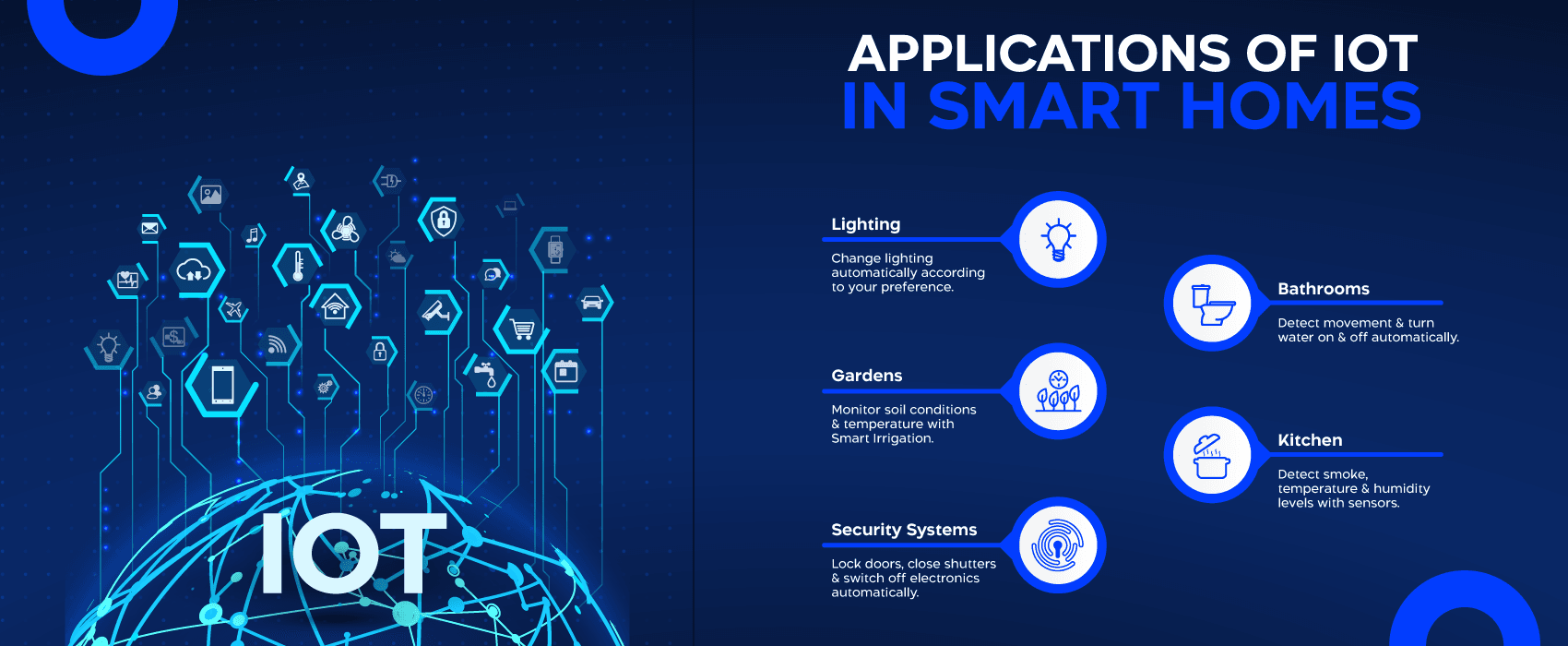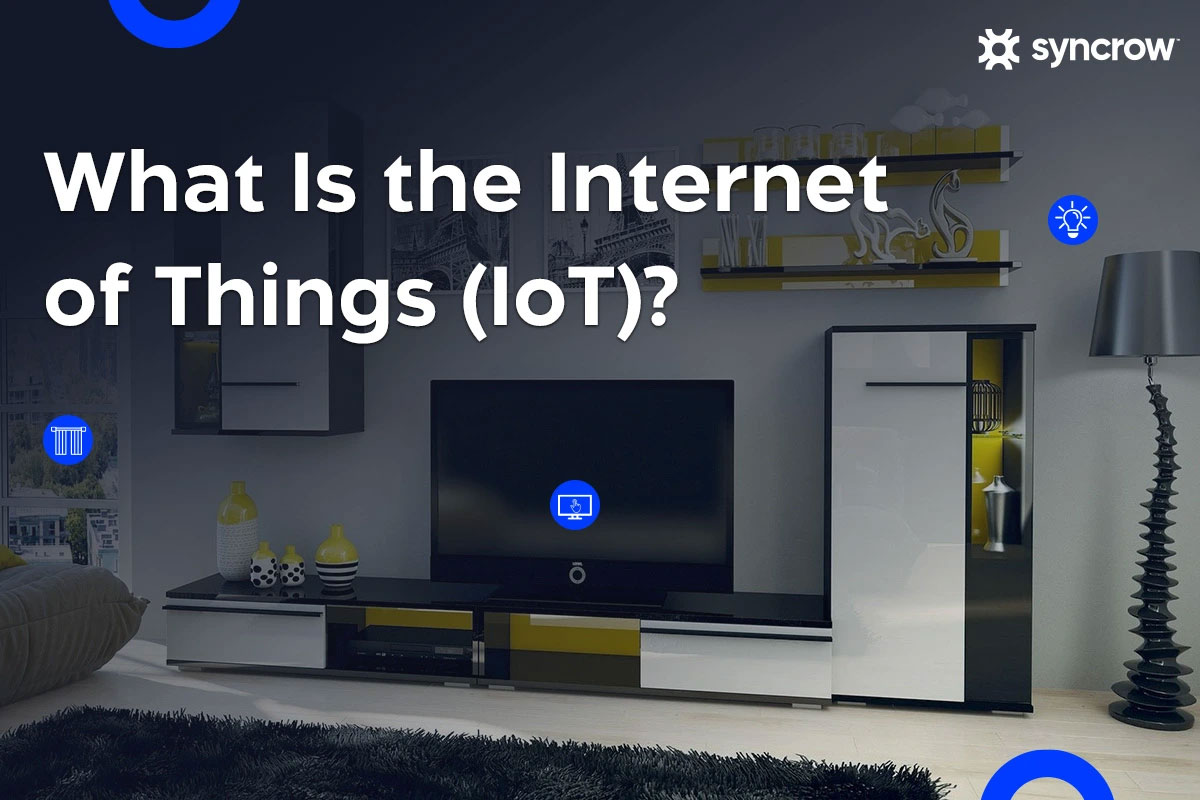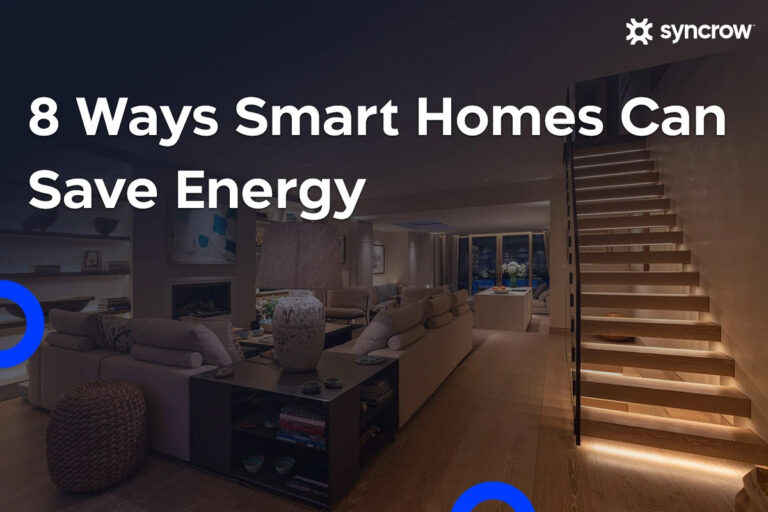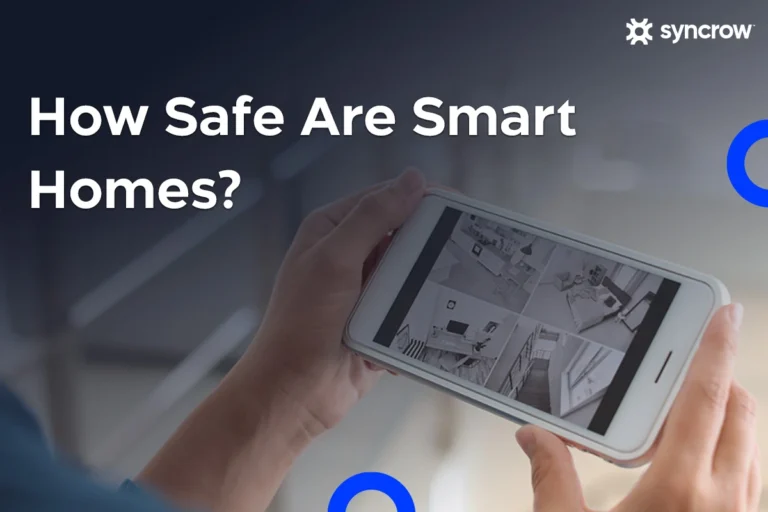A decade ago, having a futuristic home where you could use your smartphone to control blinders or train your thermostat to remember your preferred temperature was sufficient to qualify as a smart home. It’s interesting to note that the first generation of smart homes focused more on automation and remote control than intelligence.
Smart home systems have become very popular due to their ability to improve comfort and quality of life. Microcontrollers and smartphones are used to operate most smart home devices. An application for smartphones is used to monitor and control house functions using wireless communication methods.
Let’s find out the impact that the Internet of Things has had on Smart Homes.
Defining IoT
The internet of things, or IoT, is a network of connected computing devices, mechanical and digital machines, and objects that can exchange data over a network without requiring human-to-human or human-to-computer interaction.
The term “thing” refers to any natural or artificial object that can be given an Internet Protocol (IP) address and has the ability to transfer data over a network, including people with implanted heart monitors, farm animals with biochip transponders, cars with built-in tire pressure monitors, and other examples.
Organisations across a range of industries are increasingly utilising IoT to run more smoothly, better understand their consumers to provide better customer service, boost decision-making, and raise the value of the company.
Why is IoT important for organisations?
People who use the Internet of Things can live and work more intelligently and have total control over their life. With the help of IoT, organisations can see in real time how their systems actually function, gaining insights into anything from equipment performance to supply chain and logistics activities.
Businesses can automate procedures and save money on labour thanks to IoT. Also, it reduces waste, enhances service delivery, lowers the cost of manufacturing and delivering items, and provides transparency into customer transactions.
Why is IoT essential for Smart Home Automation?
It is now possible to build a smart house that meets and even exceeds the expectations of consumers. The appliances, devices, and sensors in your home continuously record how you use them. They use sophisticated algorithms to identify your consumption patterns and learn about your behaviours. Then, these revelations assist in fine-tuning your experience.
A smart home is one that contains a variety of smart appliances that can automate housekeeping remotely. Also, they could form a single network. For instance, your vacuum cleaner might begin cleaning every day at 11 AM, or the lights could turn on the instant you enter the house.
But when IoT joins this squad, the real magic begins. It gives all of the devices access to the internet, expanding the potential of such a home network. For instance, you can now use your smartphone or computer to see security cameras in your home to observe what is happening there.
IoT applications let you link devices to one another and enable automatic communication between them. Imagine that as soon as your automobile leaves the workplace parking lot, the air conditioner begins to chill your home, allowing you to arrive home after a hot day at a comfortable temperature.
Applications of IoT in Smart Homes
The speed at which technology is currently developing and providing comfort through its services are making every city in the world have smart homes. Here are some of the applications of IoT in smart phones.
- Lighting
People can now change the lighting in their homes automatically according to their preferences. The lights may dim automatically when people start watching a movie to keep them from being distracted or the lights may automatically turn on when you enter your home without you pressing a button.
All of your home’s lights may be controlled by your smartphone, laptop, and other connected devices. It would therefore be possible to configure your app to turn on your light when the alarm goes off. - Bathrooms
IoT technology could improve the convenience and fun of your regular activities in the toilet. Smart mirrors can connect to other devices like computers and smartphones, and identify and display relevant information related to family members’ faces, including news stories, weather predictions, or certain websites.
Special sensors can detect movement and turn off the water automatically if no one is using the restroom. Smart shower controls may also identify individuals and set their preferred water pressure and temperature preferences, as well as impose a time limit on shower sessions in order to conserve water. - Gardens
For those who desire to grow their own vegetables, fruits, and herbs at home, sensors are quite helpful. Users can check the app to determine the proper temperature, whether the plant is getting enough water, and whether it is getting enough sunlight.
Smart irrigation can be controlled by monitoring soil conditions, assessing the amount of moisture in the soil, and turning on irrigation if necessary. When the ideal moisture level is reached, the sensor detects it and turns off the irrigation system. The Internet of Things has produced a significant advancement in gardening that will fundamentally change the way plants are grown in the future. - Kitchen
IoT devices can improve cooking safety and simplicity using AI technologies. To make sure everything is in working condition, smart sensors can keep an eye out for smoke and carbon monoxide as well as the temperature and humidity levels in your kitchen. Special built-in programs monitor the user’s food supply in the refrigerator, provide recipe recommendations, and evaluate the nutritional value of meals. - Security Systems
With the help of particular sensors, smart security systems can make sure your TV, computer and other electrical devices are off before you leave your home. These devices can lock the door, close the shutters, turn off the electronics, and make sure your home is secure. Users can check on their homes and control the temperature, humidity, and lighting remotely using the app on their phones.

The Bottom Line
The future of the smart home is already here, and it is changing quickly, thanks to the increased investment in IoT. Today, we can see outstanding connected systems for homes and utilities that save individuals a lot of money, improve home efficiency and comfort, and promote environmental sustainability.
The Internet of Things and artificial intelligence are developing at an accelerated pace, leading to the emergence of a new household, an intelligent environment that anticipates the needs and wants of its occupants and provides them a truly seamless user experience.





